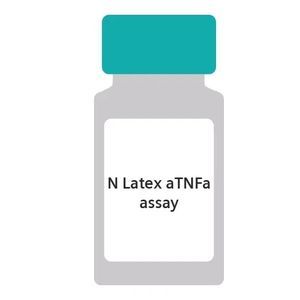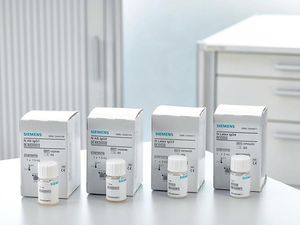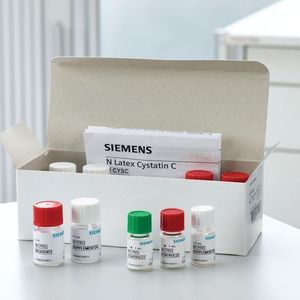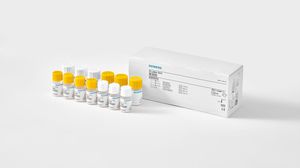
- Laboratory
- Laboratory medicine
- Toxicology test kit
- Siemens Healthineers - Laboratory Diagnostics
Toxicology assay kit N Latex CDTalcoholserumimmunoassay
Add to favorites
Compare this product
Characteristics
- Application field
- for toxicology
- Tested parameter
- alcohol
- Sample type
- serum
- Analysis mode
- immunoassay, automated
- Result display time
18 min
Description
The N Latex CDT assay for use on Atellica® NEPH 630, BN™ II and BN ProSpec® Systems provides a highly specific screening method for the detection of alcohol abuse. The CDT level increases and decreases with the amount of alcohol consumed; therefore, many different applications are possible, such as differential diagnosis of alcohol-induced versus nonalcohol-induced diseases, legal applications (e.g., for regranting of driver’s license), workplace testing, or forensic toxicology.
Fully automated immunoassay with no sample pretreatment required
Highly specific monoclonal antibody that directly detects CDT
Automatic calculation of %CDT by running CDT and transferrin assays simultaneously
Fast availability of results—within 20 minutes (total assay time)
Random-access capability
Reliable results—excellent recovery between labs, systems, and lots
Features & Benefits
Carbohydrate-deficient transferrin (CDT) is regarded as a very specific marker for identifying excessive alcohol consumption and monitoring abstinence during outpatient treatment.
Regular alcohol consumption of more than 50–80 g of ethanol per day for at least 2 weeks can result in a changed glycosylation pattern of transferrin, leading to a higher rate of isoforms lacking one or both entire carbohydrate chains. These isoforms (disialo- and asialotransferrin) are collectively named carbohydrate-deficient transferrin (Figure 1). After approximately 2–4 weeks of abstinence, CDT concentrations usually return to normal levels.
Catalogs
No catalogs are available for this product.
See all of Siemens Healthineers - Laboratory Diagnostics‘s catalogsOther Siemens Healthineers - Laboratory Diagnostics products
Plasma Proteins
Related Searches
- SIEMENS test kit
- Solution reagent kit
- Blood assay kit
- Serum assay kit
- Immunoassay assay kit
- Plasma assay kit
- Diagnostic reagent kit
- Laboratory reagent kit
- Protein reagent kit
- Clinical assay kit
- Clinical chemistry reagent
- SIEMENS biochemistry analyzer
- Quality control reagent kit
- Laboratory software
- SIEMENS automatic biochemistry analyzer
- Benchtop clinical chemistry analyzer
- Clinical reagent kit
- Virus reagent kit
- Test strip
- Laboratory detection kit
*Prices are pre-tax. They exclude delivery charges and customs duties and do not include additional charges for installation or activation options. Prices are indicative only and may vary by country, with changes to the cost of raw materials and exchange rates.










